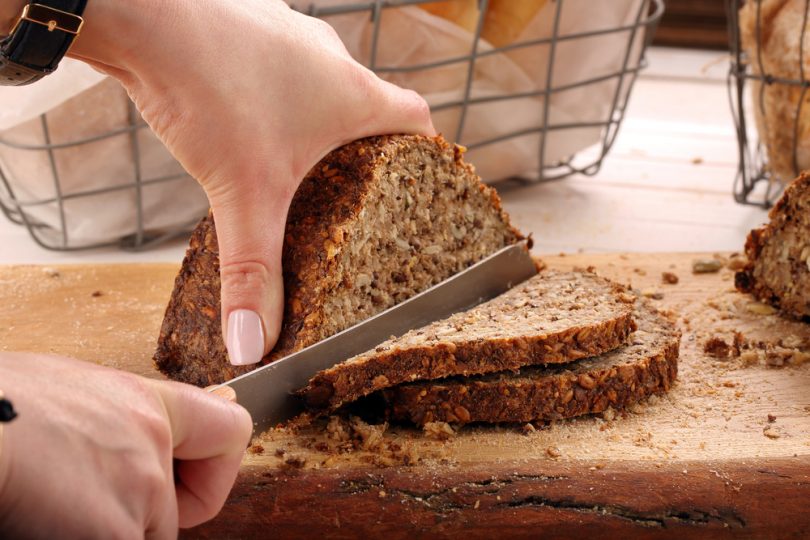Are you ready to explore the realm of nutrition and find some wholesome goodness? You know eating a well-balanced diet is essential for a healthy lifestyle. But have you ever considered the specific significance of whole grains in this equation? Don’t worry if you haven’t; now is the time to do that!
So, when it comes to grains, there are two main types that you often hear about – whole grains and processed or refined grains. But what exactly is the difference between the two? And why should you choose whole grains instead of their refined counterparts?
This blog post explores the answers to these questions! It delves into the benefits of whole grains and gives practical advice on including them in your meals. So, grab a cup of tea – or coffee, and let’s get started!
Whole Grains VS. Refined Grains
The difference between whole grains and processed grains is frequently debated. But what precisely is the distinction? Whole grains have all three sections of a grain intact (bran, germ, and endosperm), whereas refined grains have the bran and germ removed, leaving only the endosperm.
As a result, many of the minerals and fiber contained in whole grains are eradicated during the refining process, making them less nutritious overall. Sometimes processed grains are enriched with vitamin B and Iron. But still, they lack fiber and other key nutrients.
So what are whole grain foods? Common examples include millet, barley, oatmeal, popcorn, whole wheat flour, and many other popular foods.
List of Nutrients in Whole Grains
Check out the treasure trove of nutrition whole grains offer!
- Vitamin E
- Vitamin B-6 (Pyridoxine)
- Vitamin B-2 (Riboflavin)
- Vitamin B-9 (Folate)
- Vitamin B-3 (Niacin)
- Vitamin B-1 (Thiamin)
- Vitamin A
- Magnesium
- Iron
- Selenium
- Phosphorus
8 Major Health Benefits of Whole Grains
So why should you choose whole grains over refined grains? Well, there are plenty of reasons. Here are 8 most significant health benefits of incorporating whole grains into your diet:-
- Provide Nutrients and Fiber
Whole grains are packed with essential nutrients like vitamins, minerals, and antioxidants. They are also an excellent source of dietary fiber, which promotes healthy digestion and helps you feel fuller for longer.
- Lower Your Risk of Heart Disease or Stroke
Studies show that consuming whole grains regularly can help lower the risk of heart disease and stroke. The fiber and antioxidants in whole grains contribute to healthier blood vessels and lower cholesterol levels.
- Protect From Obesity
Whole grains can be a valuable ally in maintaining a healthy weight. Their high fiber content aids digestion, reduces hunger pangs, and helps control calorie intake.
- Decrease the Chance of Acquiring Type 2 Diabetes
Eating whole grains has been related to a lower risk of developing type 2 diabetes. Whole grains provide fiber and minerals that help manage blood sugar levels and increase insulin sensitivity.
- Promote Regular Bowel Movements
There is a long list of benefits of fiber in whole grains. One of them is it improves your digestion and prevents constipation by promoting regular bowel movements.
- Reduce Chronic Inflammation
Chronic inflammation has been linked to various health problems, including heart disease, diabetes, and some cancers. Whole grains have anti-inflammatory and antioxidant components that can help decrease inflammation.
- Support a Healthy Microbiome
Whole grains, such as oats and barley, include resistant starch, a carbohydrate that functions as a prebiotic. It nourishes the good bacteria in your stomach, supporting a healthy microbiome.
- Lower Blood Pressure Level
Another significant benefit of whole grains is by consuming them regularly, you can lower your blood pressure levels and lessen the risk of getting hypertension.
Ways to Incorporate Whole Grain Foods Into Your Diet
Now that it’s established that grains are good for you as they come with a bunch of health advantages let’s look at some practical suggestions for including them in your regular diet!
- Try baking gluten-free breads and cookies using low calorie flours such as quinoa or ragi flour. These flours can be utilized in various backing recipes.
- When buying bread or buns to make sandwiches, look for products that mention “whole wheat” or “whole grain” as the first ingredient.
- Cook porridge from oats or other whole grains such as quinoa or amaranth.
- Eat whole-wheat bran flakes, shredded wheat, or muesli for breakfast to give a healthy start to the day.
- Substitute brown rice, wild rice, bulgur, or barley for white rice. These substitutes provide more nutrients, a nuttier flavor, and a chewier texture.
- In tacos, use stone-ground corn or whole-wheat tortillas instead of white tortillas.
- Use whole grains in soups, stews, casseroles, and salads.
Including whole grain foods in your diet is a simple yet effective step towards healthy living. They provide several health advantages, ranging from lowering the risk of heart disease and diabetes to promoting good digestion.
Remember that little adjustments may have an enormous impact. So, the next time you shop for a loaf of bread or rice bowl, choose wholesome varieties. Your body will appreciate it!







